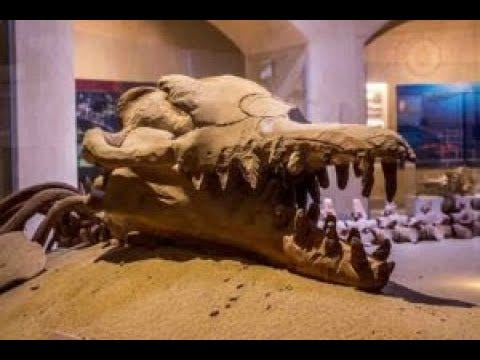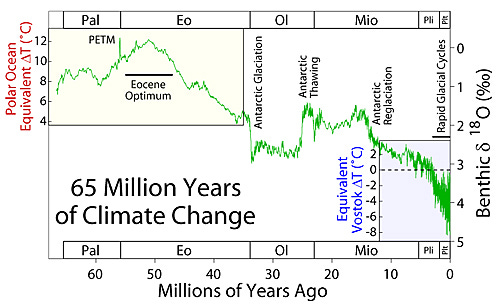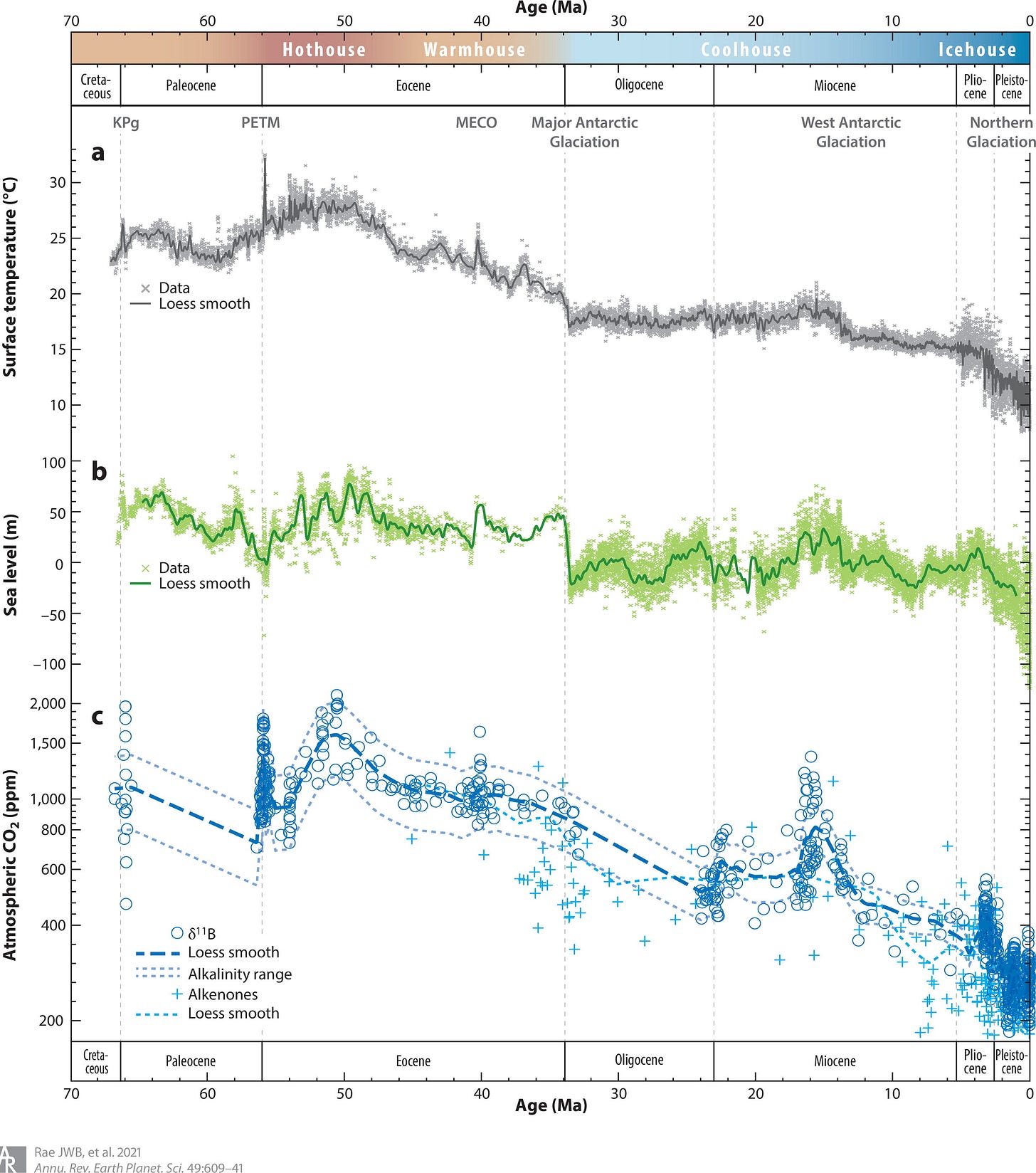A place where I had always wanted to go, and I finally I managed to. The “Valley of Whales,” Wadi al Hitan, in the Sahara desert in Egypt. A place where you can really feel the slow movement of Earth’s evolution across the ages.
Whales in the desert. Why? How? What’s so interesting in their skeletons left in the scorching sun of the Sahara? As they say, everything worth learning is not easy to learn, and understanding the whales of the Sahara desert takes a certain effort. But not so much, and if you make this effort, the gates of knowledge are open for you.
So, we are talking of events that took place 40 million years ago, during the period we call the “Eocene” - a hot and balmy age when Earth had no icecaps and an average temperature maybe 8-10 degrees higher than it is today. At that time, the Sahara was the bottom of a shallow sea. And, in that sea, whales swam.
Those Sahara whales were not the modern whales, those we call “baleen whales.” But they had the high-powered metabolism that would later generate baleen whales. Whales were hot-blooded and breathed oxygen, and that gave them a source of energy incomparable to that of the slower fish of those times. It was an innovation that made whales take for themselves a space in the food chain that had been unoccupied since the times of the dinosaurs, tens of millions of years before.
As for everything in an ecosystem and all complex systems, the golden rule is that “you cannot just change one thing.” The appearance of the whales in the oceans had enormous effects on the ecosystem. One of these effects that we can measure is the temperature.
The rise of marine mammals, seal-like creatures, took place at about the peak temperature of the Eocene. Is it possible that there is a correlation with the start of the decline of temperatures? It is not inconceivable, especially if we follow the curve all the way to about 35 million years ago when we see an abrupt drop. It corresponds to the appearance of baleen whales. Can it be that the two phenomena are related to each other?
How can whales cool Earth’s atmosphere? The trick is always the same: the Earth cools as a function of the atmospheric CO2 concentrations. Here is another image of the same data (https://www.p-co2.org/data).
There is some scatter in the data, but there is a clear correspondence between CO2 concentrations and temperature. In themselves, whales do not absorb CO2, but their high metabolic rate speeds up the metabolism of the whole ocean. It is the result of several factors, the main one being “whale poop.” When whales feed in deep waters, they come up to the surface to breathe and release fecal plumes rich in nutrients. These nutrients, including nitrogen and iron, fertilize the surface waters, stimulating the growth of phytoplankton and supporting the entire food web. Then, when these creatures die, their carcasses sink to the ocean floor, taking large amounts of carbon with them. The carbon deposited onto the bottom of the oceans is partly removed from the biosphere by geologic processes. The end result is the slow removal of CO2 from the atmosphere and, hence, cooling.
Of course, whales are only one of the many elements that maintain the homeostasis of the biosphere, and I am the first to say that there are several alternative explanations for the cooling cycle that started about 50 million years ago. Yet, it is fascinating to think of the role that whales played in it, and how their extermination by human beings may be one of the factors that will take us back to the high temperatures of the Eocene, which we wouldn’t probably survive.
In a sense, it will be the revenge of the whales, exterminated during the past two centuries or so because of their thick layer of body fat, the “blubber.” It was one of the characteristics of their evolutionary success that allowed them to keep their bodies warm while swimming in the cold ocean. But, for humans, the blubber was a fuel. And that was nearly the end of whales, so reduced in numbers today that seas are reduced to deserts, and their effect on climate has mainly vanished.
Could we have whales return to the previous numbers? In that case, they will have a chance to cure Earth’s fever. Who knows? It may be an easier and more effective way to act against the heat wave that’s engulfing the planet. Surely, whales won’t object to being re-introduced into the oceans, unlike humans, who keep doing all they can to damage themselves by ruining the ecosystem that makes them live. But the only thing we know for sure is that Earth changes all the time, slowly, but securely moving toward the future. It will continue to do so
h/t Ahmed Rawash who expertly organized my trip to Wadi al Hitan, the Valley of the Whales
Note added after publication: I found a 2007 article by Wolfgang Berger that discusses the same matters but arrives at opposite conclusions. According to him, whale evolution was driven by the cooling and not the reverse, as I suggest. But these two interpretations may not be as opposite as they seem to be. In a complex system, such as the ecosystem, there are no causes and no effects. There are only forcings and feedbacks.








Hello Ugo. Glad to see you were able to visit Egypt finally. It was a place on my bucket list for years, but is probably not going to happen now ... It’s a very long flight from the US and I don't intend to fly again except for an emergency. And I would be just another tourist in the way.
But reintroducing whales and other deep sea life could eventually have a very big impact on our worlds environment and human society. In fact part of our problem is that we have wiped out so many species that we don’t even know how the biological environment once worked.
Biological methods seem to work well in the few areas we have tried them ... when we aren't caught up in fever dreams of mirrors in space or settlements on Mars.
But that means encouraging different species for different places and no one size fits all solutions ... and engineers hate that diversity since they can't just replicate their favorite bit of technology everywhere.
"So Long, and Thanks for All the Fish" :-) https://en.wikipedia.org/wiki/So_Long,_and_Thanks_for_All_the_Fish